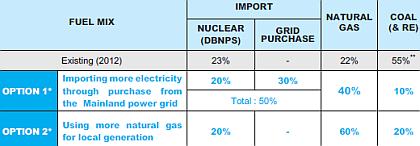Hong Kong government public consultation exercises are usually charades. The current one about universal suffrage in 2016-17 is designed to give citizens the impression that they have some input when the outcome is all-but inevitable and pre-determined in Beijing. In order to avoid admitting the nature of a one-party state, the discussion document rests on the premise that the inescapable might of the law grants us only a particular and narrow range of choices, which pretty much come down to ‘take it or leave it’. It is an improvement on previous constitutional reform consultations, which were either cynically engineered to produce a lack of consensus, or simply avoid progress by offering only a choice of non-changes.
When it comes to fiscal matters, the local bureaucrat-tycoon establishment uses public consultation to blatantly push its own agenda, as we have seen in numerous proposals to reform health-care financing and to broaden the tax base. They follow a similar pattern: identify a problem as alarmingly serious and beyond question, then offer five possible solutions, four of which have major drawbacks, thus leading any sentient being to choose the ‘correct’ way to make you pay more tax so they can fund more white-elephant infrastructure projects. The public response also follows a similar pattern: something along the lines of ‘drop dead’.
Occasionally, the administration appears to hold a public consultation exercise with an open mind about the outcome. The problem is real; no single solution leaps out as perfect; and, presumably, no vested interests stand to benefit from any particular option. The issues in these cases tend to be icky and tedious, like waste-disposal – the sort of thing you don’t really want to be asked about but just expect someone else to sort out.
I suppose this is the case with the Environment Bureau’s invitation to express our preference over future sources of electricity. I say ‘I suppose’ because I take electricity for  granted and simply want to carry on doing so. If you can make the air cleaner, that would be great, and I’m sufficiently well-off not to care if the price goes up.
granted and simply want to carry on doing so. If you can make the air cleaner, that would be great, and I’m sufficiently well-off not to care if the price goes up.
We are being offered two options: cleaner air and pricier electricity generated in Hong Kong, and cleaner air and pricier electricity generated on the Mainland. You can read the whole thing and fill in a response form. Or you can wonder why, since all else is equal, we are being asked. If we can move power stations out of this over-cluttered city, let’s do it.
I’m trying to think of objections. Maybe people who work at power stations will whine about losing their jobs. Perhaps a few mercantilist economic illiterates will say we should generate our own electricity for the sake of the current (ha ha!) account. The more-extreme environmentalists will denounce everyone for using any electricity at all when we should be rubbing sticks together and eating our food raw. Paranoids might say we should be self-sufficient so Beijing can’t threaten to cut our power supply unless we shut up and love the Communist Party. Patriots could argue that it’s unfair to dump dirty industry on our beloved brethren across the ‘boundary’ and we should nobly breathe our own mess in. Perhaps post-modernists will demand we keep our own power stations on grounds of aesthetics.
That’s the best I can do. Shut the things down and buy the stuff from the Mainland.
Perhaps this consultation is in fact another pretense after all – designed to make us think we are making a choice when it is really subliminally brainwashing us into accepting higher energy prices in future. But we would like to think that nice KS Wong and Christine Loh are above that sort of lame, half-baked skullduggery of the sort proposed by supercilious civil servants who think they’re ruling over a population of five-year-olds.
Or maybe it’s designed to subliminally brainwash us into coming to terms with the idea of cleaner air. It will be an almost-traumatic adjustment to make.

